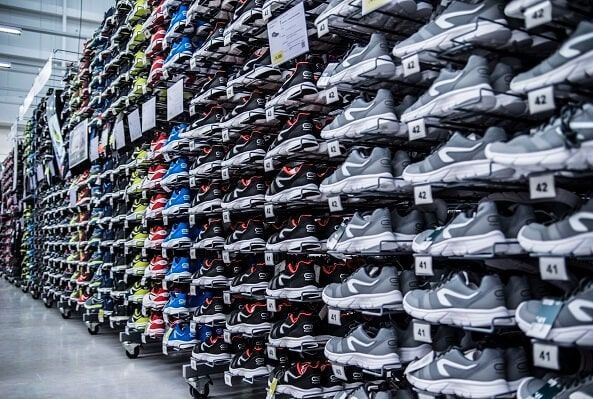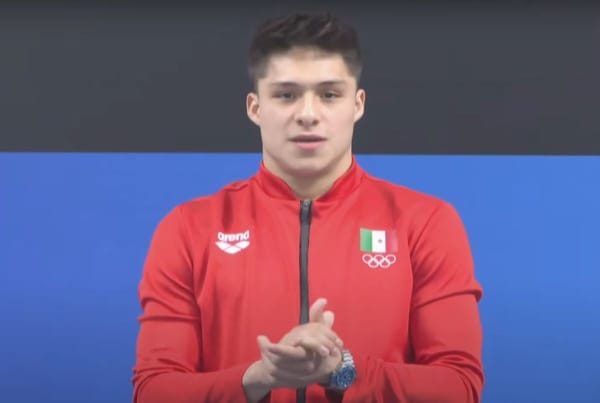Decathlon, the IKEA of sport, accelerates its expansion in Mexico
The French clothing and sporting goods firm Decathlon wants to have 15 stores by 2020, located in the main cities of the country.

Just over three years ago the French firm Decathlon opened its first store in Mexico. Since then, the sports products company has expanded in major cities and by 2020 expects to reach at least 15 stores and strengthen its presence among Mexican consumers.
Since 2016, the firm led by Eric Fortune in the country has opened 10 stores and 2019 will be one of its most dynamic years with four openings. Its landing came hand in hand with the interest of Mexicans for sports, something that the company wanted to take advantage of with its brands, explains Fortune. The company already had a presence in Chile, Colombia, and other countries in the region.
"Mexico is a country where the sporting part is important and continues to develop a lot and Decathlon is a company that tries to democratize sport. That's why we came here," explains the executive.
The country's first Decathlon was located in Querétaro, in the Juriquilla area. It is the most similar to what Decathlon has in Europe, where it has units of about 12,000 square meters on the outskirts of major cities. "I like to call us the IKEA or the Costco of sport," says the director.
The company has had to adapt its stores, which are located in Merida, Monterrey, Torreon, Aguascalientes, Zapopan, and Mexico City, to spaces of between 3,000 and 4,000 square meters with an offer of 5,000 products within shopping centers in the country, as there is little land available for large establishments. The first opening of 2019 was in Torreón and it will be followed by one in Mundo E, in the metropolitan area of the capital, one more in Monterrey, and then in Saltillo. In 2020, Puebla will be added to the list.
The advantages of own brands
The company markets more than 4,000 products from 60 brands specializing in cycling, tennis, gymnastics, swimming, and even nutrition. Decathlon designs the products, which are manufactured by local manufacturers in the countries in which it has a presence. This strategy gives it the ability to know and manage production costs and thus expand your profits compared to other prestigious brands by offering prices below the competition.
"Some companies have made a business out of maintaining their own brands. They have a limited assortment in a certain category compared to some of their competitors and manage to have a much higher inventory turnover than their competitors and margins well above them," explains Rodrigo Mayo, partner for Mexico in Bain & Company.
These types of retailers, "value champions" as Mayo calls them, are the business models that have the best chance of surviving in the sector in the future. In the case of Decathlon, it is not necessary to make offers like other sports or department stores, as its price strategy is always to have the lowest in the market. In addition to the operative part, there is also the way Decathlon sells its products and how it relates to its customers.
"For me, the big difference is the fact of building a user experience in the store that goes beyond the act of purchase. The aim is to present the product range, touch it, exchange opinions with those who practice this sport, because the collaborators practice the sports they sell and generate empathy," explains Fortune.
The company hires sportspeople specialized in each discipline to help consumers test the equipment and give recommendations with greater specialization and experience. In Mexico, a third of the total brand offer in the country is available, around 20 own brands. The next step is to bring brands of football and baseball, in addition to some for water sports in stores such as Mérida.
Specialized manufacturers
The manufacture of Decathlonarticles is distributed throughout the world according to the demand for products and manufacturing specialization. Bicycles are produced in France and Portugal due to strong demand, but footwear comes from Vietnam, where there are good manufacturers, says Fortune.
"We started production in Mexico because there is a very important know-how, and then because we think that from Mexico we will be able to supply other nearby countries in the future.
Its suppliers are located in Jalisco and Mexico City, which are in charge of textile products such as socks, gymnastics shirts, basketballs, and others. The goal in the future is to have production centers by region and it is possible that here it will be produced for the other countries of North America. The company plans to continue growing production capacity with local firms that meet the company's international standards.




